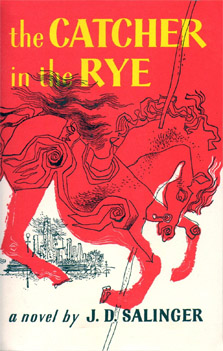Published in 1951, The Catcher in the Rye, J. D. Salinger’s Bildungsroman about sixteen-year-old Holden Caulfield, is one of the most controversial novels in recent U.S. history. Since the early 1960s, disputes over Catcher in the Rye have arisen in more than seventy communities across the United States.
School boards have restricted the novel for its profanity and content
In some instances, school boards banned the novel, while others removed it from school reading lists or “restricted” it, requiring students to obtain parental permission to read it. In Harris v. Mechanicville Central School District (N.Y. 1978), a high school English teacher was dismissed for insubordination when he refused to drop the book from his curriculum.
School boards and parent-teacher associations have been hostile toward the novel because of Holden’s profanity-laden speech and his sexual adventures following his expulsion from prep school. These include an episode with a pimp and a prostitute (with whom Holden does not have sex) and a visit to an old teacher, Mr. Antolini, who gets drunk and makes what Holden interprets as a sexual advance. In recent years, the novel has also been blamed for promoting alienation among students responsible for high-school shootings. Nevertheless, Catcher in the Rye is widely regarded as one of the most important contributions to American literature since the end of World War II.
This article was originally published in 2009. Simon Stern is Professor of Law and English at the University of Toronto. He has published articles and book chapters on obscenity, copyright, criminal procedure, legal fictions, and the history of the common law.

